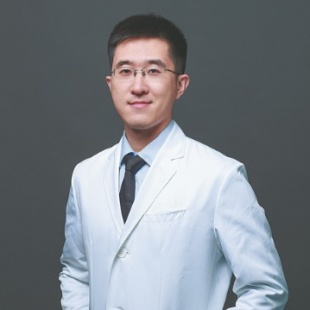A book of hope in a time of fear
Doctor seeks to help families with practical advice when dealing with the trauma of cancer, Fang Aiqing reports.


Going through Wang's book, she said she had paid such a high price exploring and learning about every single item on the list and wished there had been such a book when her mother was alive.
Wang starts the book by explaining what cancer is and why it's hard to cure, pointing out the growing incidence rate is due to increasing life expectancy.
The following chapters are about how to get the necessary knowledge and make informed choices regarding hospitals, clinical departments and doctors. Liu regards that as the most crucial, but difficult, step for treatment.
Having her mother hospitalized both locally and in Shanghai, Liu says it's demanding for the family to identify quality medical care, especially for severe ailments like cancer.
And although patients and the family naturally want to hear soothing and optimistic words from doctors, they also feel relieved once they make sure doctors are professional and earnest, she says.
Observations Wang lays out for cancer patients and their family to work out whether or not a doctor is trustworthy are also applicable to doctors looking to improve their relationship with patients.
He also explains the confusion many patients share from a doctor's diagnosis: Why the initial inquiry is so brief and is it enough for doctors to know fully about the patient's condition within such a short time? Why doctors have many seemingly unimportant questions, but are often unwilling to answer all the questions patients raise? Why doctors sometimes seem so indifferent or irritated? And, is it necessary to get an acquaintance to introduce the patients to a certain doctor?
It was not until Wang had accompanied his mother-in-law going through cancer treatment that he realized every medical order given by the doctor can potentially trigger a series of other considerations on the part of the family.
Out of love and anxiety, family members of cancer patients can easily make costly but unnecessary decisions, or get overwhelmed by information from numerous outlets online and offline.
The book then comes to the part discussing how to mentally digest the fact that a beloved family member is ill, before sharing advice. That touches on a more serious topic around a patient's right to know, to make decisions and to participate in the treatment. Particularly, Wang wants to keep both patients and their family from stigma and self-blame.
Also worth noting is Wang's observation on the distribution of family roles in treatment. He takes the example of himself as a son-in-law-emotionally involved, but relatively neutral from the parents and daughter-in trying to make cost-effective decisions, like whether to use an imported chemotherapeutic drug or a domestic one, while taking into account everyone's emotions.
The example indicates the importance of staying rational, to think and solve specific problems such as the duration, means, expenses and recovery rate of the treatment, instead of sticking to questions, such as whether the patient will die or if the treatment will be too painful, and having a suitable person in the family to speak out when necessary.
Fond of Japanese manga and anime One Piece in high school, especially the character Tony Tony Chopper who serves as a ship's doctor, Wang decided to learn medicine in college with a simple wish to help more people.





































